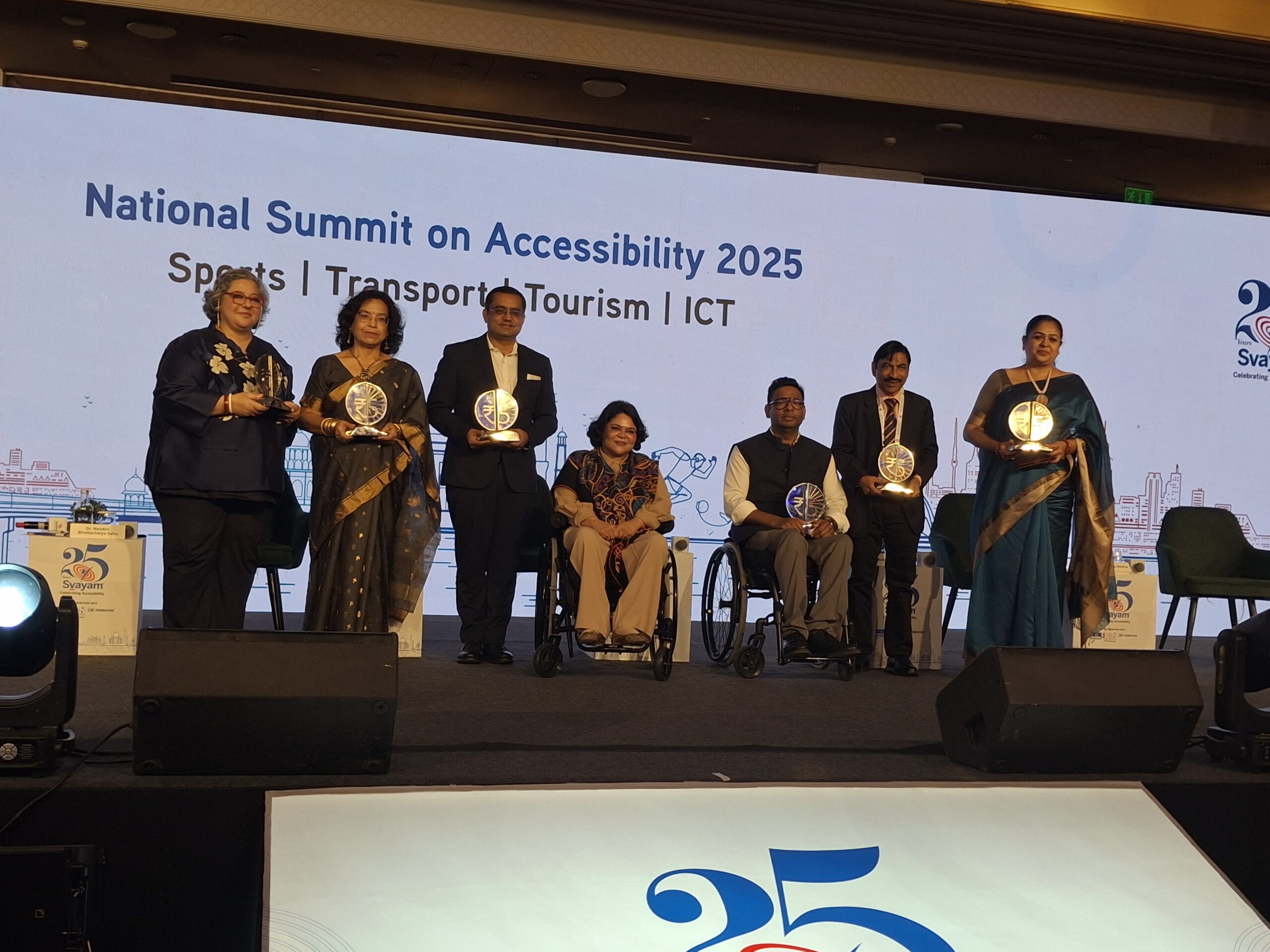The first National seminar on Accessibility – Sports, Tourism, Transport and ICT – organised at the aegis of Svayam, a leading accessibility advocacy organisation, in Delhi has urged the service industry to look at the financial benefits of investing in reducing the mobility barriers at every level and need for a unified national approach to inclusive infrastructure in sports, tourism, mobility and digital ecosystems.
A White Paper commissioned by Svayam, with the support of KPMG India, has estimated incremental annualised tourism revenue of USD 16.58 billion for the country if the current barriers to accessibility of travel and tourism products and services are removed. Due to accessibility-related issues, an estimated 19 crore people are completely excluded from participating in tourism and making any significant contribution to the tourism economy, the study reveals.
While people with mobility issues have spending power comparable to that of normal human beings and travellers, the White Paper states that they tend to spend 23.5 per cent more per trip than normal travellers, as they require additional services and assistance.
Among the barriers to travel, the White Paper puts the absence of enabling infrastructure on top while other factors, such as lack of sensitisation in the society at large, including the service providers like the transport and hospitality providers are cited as critical challenges.
Irrespective there being policy interventions in recent years to address mobility and accessibility challenges, including the apex court ruling on right to mobility and accessibility of disabled people this year, the White Paper laments the poor implementation of accessibility components in various infrastructure-related projects in the country.
Talking to TravelBiz Monitor on the sidelines of the event, Sminu Jindal, Founder Chairperson of Svayam, and MD, Jindal SAW Limited, said that the sheer number of beneficiaries present in the country is the key reason to believe that investments in accessibility and mobility will make highest socio-economic impact in India than in any other country in the world.
“India faces an estimated loss of USD 1 trillion in its GDP owing to lack of accessibility inclusion in businesses, underscoring the need for accessibility to be viewed as not merely a social responsibility but a true economic imperative for the nation,” Jindal said. She said that they have deliberately chosen four verticals – sports, transport, tourism and ICT – for the national agenda because those are areas people can connect and relate quickly and understand the financial benefits that can be accrued out of them.
Participating in a panel discussion on ‘Tourism & Culture Accessibility for All – Advancing Inclusive Travel Ecosystems Towards 2030’ at the summit, Mugdha Sinha, MD, ITDC, said that 21 different disabilities have been identified under the differently-abled category by the government, and many more are yet to be identified and recognised. She called for proper education, sensitisation and capacity building in the society to ensure inclusion in every sense. Instead of working in silos, she said it is time for everyone associated with the ecosystem to join hands in a campaign mode to create credible prototypes that make the accessibility framework get embedded in the project stage itself.
Earlier, in his keynote address, Tim Curtis, Director, UNESCO Regional Office for South Asia also highlighted how making the right to mobility and accessibility for all kinds of citizens vital and therefore a “collective responsibility” of the society considering the sheer volume of people gets impacted by it globally as well as in India. He said that while there are an estimated 1.3 billion people globally who are suffering from mobility issues, in India, as per the 2011 census, it’s 2.2 per cent of the population with its impact on 6 to 8 percent of the total population. He said that an inclusive approach to design can open up a whole new world of opportunities to people who are marginalised and discriminated in the society. He cited how making over 40 Durga Puja pandals in Kolkata city fully barrier free and accessible changed the life of number of families with members with disabilities.
Shombi Sharp, UN Resident Coordinator in India, who was present on the occasion, observed that when a country like India with large population base acts on mitigating the accessibility related issues, it doesn’t just make a local impact but a global impact. Considering India is on a rapid urbanisation mode with one-third of the new urban centres and cities are yet to be planned and designed, Sharp said that it’s an opportune time for India to act.
Arman Ali, Executive Director, NCPEDP, a disability rights activist himself, called for a “mindset change” among the service providers including hotels as differently-abled people pay at par and demand at par service with normal customers. He said that most of the disabled friendly rooms of hotels resemble hospital rooms and stinks as they are seldom used. He said that accessibility issues impact approximately 20 crore people in this country and therefore, the service industry cannot ignore it for long. “Any business which is not disable-friendly will cease to exist in the next two decades,” he said.


